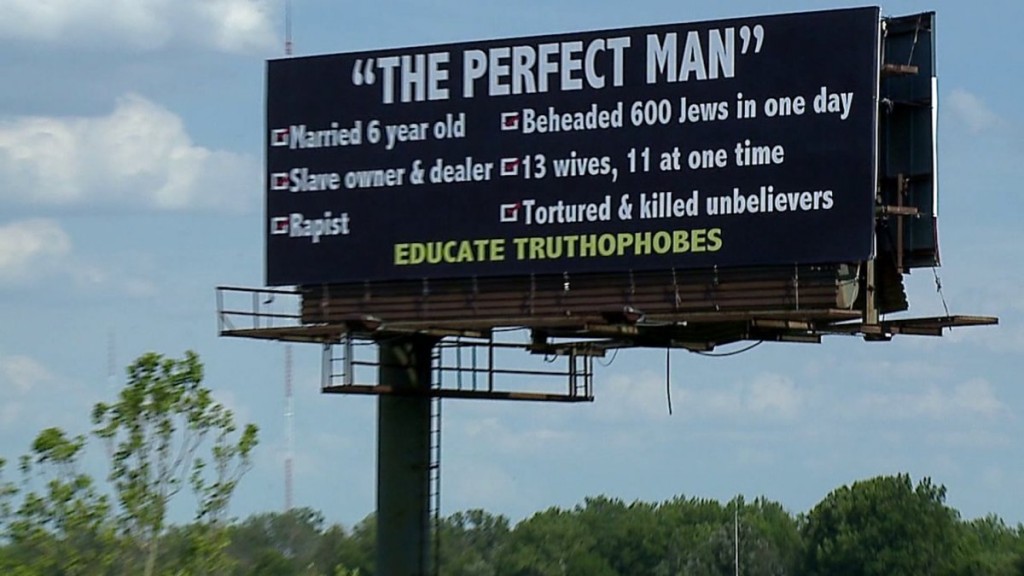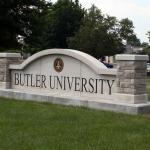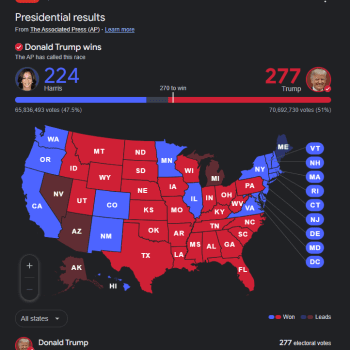Conservative blogs drew attention to a Butler University course about resisting “Trumpism” a while back. I don’t want to reignite the interest in that subject, since I know it caused a lot of headaches for a number of people around the Butler campus. But there are things related to that broader topic that need to be said as the start of the academic year draws near, and as university campuses are seeing an increase in activity by the KKK/Neo-Nazis/white supremacists, and as it becomes clear that students were among the participants and leaders of the rally. One of my favorite responses to the hullabaloo about the course on resisting Trumpism was titled “Ovid Butler vs. Donald Trump.” It expressed bafflement that anyone would be surprised to find a course like this at a school that was a pioneer not only in accepting people of all genders and races as students, but in accepting them on an equal footing to the same programs of study as everyone else. Butler University’s provost Kate Morris emphasized this history and these values at the New Faculty Orientation yesterday, and emphasized the role of an institution like Butler University in taking a stand against racism, sexism, and all forms of discrimination and oppression. These are our values, every bit as much as we embrace respect for those we disagree with who do not share those values, and the need for freedom to discuss these things and examine them critically without harassment. And if you have seen Elle Reeves’ documentary about the group that marched in Charlottesville, you almost certainly understand the importance of our values in view of what we are facing.
The Department of Religious Studies at the University of Virginia issued a statement about the recent events. Here is an excerpt:
The Department of Religious Studies rejects the white supremacist ideology of intolerance and its practice of hateful speech, as well as the violence it engenders. We stand in solidarity with the victims of these events and with those who courageously resisted the hate groups and their virulent messages; we stand with the community of Charlottesville and with all those at whom hate continues to be directed. We cherish the diversity of our student body and commit ourselves to supporting students who are targeted by hate groups. We promise to be available to students who seek support from us, even as we actively develop new initiatives to support them.
As a department, we advocate for no single religious faith or political point of view. Our faculty comprises scholars who practice different religions or no religion at all. Our professors, all of whom serve the Commonwealth of Virginia, hold a range of political views. Those who are American citizens vote their consciences individually in elections, for a wide array of political parties. Amid this political and national diversity, we stand united in our unanimous and unequivocal condemnation of those who promote hate, by way of violent speech and action—the white supremacists, the neo-Nazis, the neo-Fascists, the anti-Semites. And we regard this condemnation as the expression of a simple, moral truth rather than a political statement.
We must not hesitate to name and condemn the intimidation, terror, and violence that convulsed and profaned our city and university this weekend. We consider the groups who organized and participated in the “Unite the Right” rally to be hate groups. We do not take their views to represent a legitimate, alternative political perspective: they are dangerous, and they perpetuate what is universally condemned by all the world’s religions and ethical systems. We feel morally compelled to call out those who afflicted our community with their night-time mob on the University’s Grounds and with their violence on our city’s streets the following day. Burning torches, aggressive chanting, and racist, homophobic, and antisemitic slogans echo the symbolism, and messages, of Nazi-era Germany and of the Ku Klux Klan in the United States. This is not a time for equivocation. We stand firmly and explicitly against the views and actions of those espousing hate, terror, and violence in Charlottesville over this past weekend, and any other day.
The American Academy of Religion also released a statement, as well as circulating resources for educators that NPR shared.
After his initial weak comments after what happened in Charlottesville, even some of Donald Trump’s supporters expressed concerns, or at least articulated their stance very differently than he did (NOTE: Franklin Graham was not among them, and Richard Spencer said he was proud of Trump). Eventually, however, Trump named and criticized the KKK/Neo-Nazis/white supremacists explicitly. Perhaps that was itself an indication that resistance and speaking truth to power can have an impact? If so, however, subsequent actions and remarks by President Trump have shifted the impression he is making back in the direction of support for rather than opposition to racist individuals and organizations.
The New York Times also offered advice a while back on resisting Trump. Of course, they are viewed as liberal too, but presumably no more so than the entire enterprise of higher education, in the spectrum of which one would expect a school like Butler to fall on the progressive end. Inside Higher Ed had a piece a couple of month ago about attempts by the right to discredit higher education. And more recently, they covered sociologists’ responses to attacks on individual professors.
Richard Beck blogged about America’s Holocaust(s). Here is a sample from the post:
America has a Holocaust. And truth be told, America has two Holocausts: Slavery and the genocide of the Native Americans.
And yet, America has never morally reckoned with either slavery or the genocide of Native Americas as Holocausts. The Confederate flag is not moralized in America the way Germans see the swastika.
And this, I would argue, is the single biggest reason America has not been able to adequately address the racial problems plaguing our nation. Because there has never been a formal and culturally sustained moral reckoning with the American Holocausts we are always starting the conversation about race from two different moral locations. African Americans and Native Americans begin with the experience of Holocaust and expect us to engage this conversation with the moral, spiritual, political, and economic seriousness a Holocaust deserves.
The rest of us? We are the Holocaust deniers…
Evangelicals have also been speaking out. Peter Wehner writes:
The evangelical Christian movement in America is being compromised and discredited by the way prominent leaders have associated themselves with, first, the Donald J. Trump campaign and now, the Trump presidency. If this is allowed to define evangelical attitudes toward political power, the public witness of Christianity will be undermined in durable ways.
Ed Setzer made a similar point in Christianity Today.
You can find more about recent events in Charlottesville, and responses to them, on other Patheos blogs as well as elsewhere around the web. For instance, James Rudin shared a “revival” sermon he heard decades ago in Virginia, which illustrates the deep roots of what we have been seeing on the news lately. Nadia Bolz-Weber shared a sermon that she herself preached about white supremacy. The FBI prevented a terrorist with white supremacist views from blowing up a bank in Oklahoma City. Libby Anne discusses the common trope of the parent who expresses surprise that their child could do the thing they are accused of. David Potter talked about the antithesis between white supremacism and the gospel. Episcopal Cafe highlighted the activities of that denomination’s clergy – and bishops. Deborah Porras shared her account as an eyewitness. Rebecca Lesses shared a rabbi’s perspective. Jonathan Bernier drew connections with memory and the quest for the historical Jesus. Elizabeth Palmer blogged about a relevant graphic novel. Richard Lindsay advocated nonviolence. And finally, Butler University graduate Rev. Jill Howard shared a sermon which included a quote from Bryan Stevenson’s book Just Mercy, which happens to be the common read for this year’s incoming class of new students. I will be leading a discussion of that book with a small group of students next Monday (before we stop to view the eclipse).
The billboard that went up not long ago in the Indianapolis area shows why educators need to not simply pretend that all ideas are equal, but actually combat falsehood with truth. Critical thinking does not mean pretending that all ideas are equal. Hemant Mehta also blogged about the billboard.















